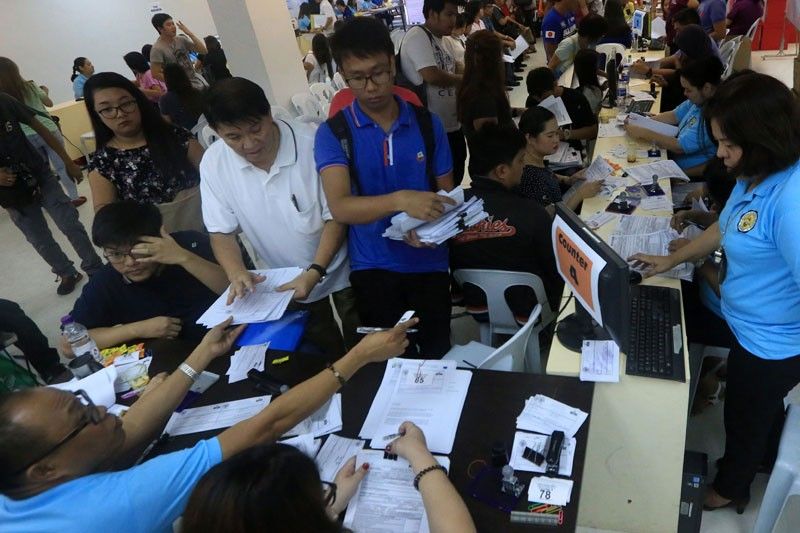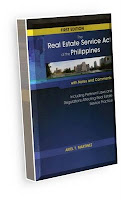
With the ratification by Congress before
it adjourned for the Christmas break, the measure is now on President
Duterte’s desk for signing. Edd Gumban
Paolo Romero (The Philippine Star) - December 26, 2018 - 12:00am
MANILA, Philippines — The Tax Amnesty Bill is
one step closer to becoming a law after the Senate and the House of
Representatives ratified the measure generally viewed as a “win-win” for
taxpayers and the government, which is expected to generate at least
P41 billion in additional revenues.
With the ratification by Congress before it adjourned for the Christmas break, the measure is now on President Duterte’s desk for signing.
The bill grants those who have failed to pay for taxable year 2017 and prior years a one-time opportunity to settle tax obligations, including estate taxes, general taxes and delinquent accounts.
The government is expected to raise up to P41 billion, which will be
used to finance crucial infrastructure projects and augment
appropriations needed for the social mitigating measures under the Tax
Reform for Acceleration and Inclusion or TRAIN law.
At least P500 million from the proceeds will be used exclusively for establishing a tax database.
“This is but another step in the long quest toward an efficient and
equitable tax system,” said Sen. Sonny Angara, chairman of the ways and
means committee.
Angara added that the two chambers have agreed to make the tax amnesty bill “pro-taxpayer” that would attract “ordinary citizens who have long wanted to come clean but feared prosecution to finally settle their arrears.”
For general tax amnesty, the bicameral conference committee agreed that taxpayers would be given the option to choose the rate between two percent of total assets or five percent of net worth or a minimum tax.
“This will give taxpayers more flexibility, which would encourage them more to avail of the amnesty,” Angara said.
Taxpayers can also avail themselves of a reprieve from all estate taxes and instead pay six percent based on the decedent’s total net estate.
The tax will benefit families who have idle properties because of years of unpaid estate taxes, resulting in huge penalties and surcharges while use of assets is not maximized.
“With the amnesty, heirs can now enjoy the assets that will be freed for development,” Angara said.
The bill also covers an amnesty on delinquencies. Taxpayers can avail themselves of 40 percent of the basic tax for delinquencies and assessments, which have become final and executory, 50 percent for cases subject of final and executory judgment by the courts and 60 percent for those subject of pending criminal cases.
Taxpayers will be given a year from the issuance of the implementing rules and regulations to avail themselves of the amnesty, except for estate tax amnesty where taxpayers will be given two years. Discounts will be granted for early availers.
Those who avail themselves of the amnesty program will be immune from payment of all taxes and the filing of civil, criminal and administrative cases and penalties.
Any information and data provided shall be confidential and shall not be admissible as evidence in any proceeding. Also, the books of accounts and other records of the taxpayer for the years covered by the tax amnesty availed of shall not be examined by the Bureau of Internal Revenue.
With tax evasion cases taking decades to be decided in clogged courts, with the expenses to investigate, prosecute and hear greater than the taxes sought to be paid, Angara said “an amnesty, in many instances, could yield bigger amounts than the prosecution route.”
Angara said unlawful divulgence of tax amnesty return and supporting documents has corresponding penalties under the bill.
A fine of P150,000 and a maximum jail term of 10 years await violators from the private sector.
If the violation is committed by a government official or employee, the penalties are fine of up to P1 million, maximum jail term of five years and perpetual disqualification from holding public office.
With the ratification by Congress before it adjourned for the Christmas break, the measure is now on President Duterte’s desk for signing.
The bill grants those who have failed to pay for taxable year 2017 and prior years a one-time opportunity to settle tax obligations, including estate taxes, general taxes and delinquent accounts.
At least P500 million from the proceeds will be used exclusively for establishing a tax database.
Angara added that the two chambers have agreed to make the tax amnesty bill “pro-taxpayer” that would attract “ordinary citizens who have long wanted to come clean but feared prosecution to finally settle their arrears.”
For general tax amnesty, the bicameral conference committee agreed that taxpayers would be given the option to choose the rate between two percent of total assets or five percent of net worth or a minimum tax.
“This will give taxpayers more flexibility, which would encourage them more to avail of the amnesty,” Angara said.
Taxpayers can also avail themselves of a reprieve from all estate taxes and instead pay six percent based on the decedent’s total net estate.
The tax will benefit families who have idle properties because of years of unpaid estate taxes, resulting in huge penalties and surcharges while use of assets is not maximized.
“With the amnesty, heirs can now enjoy the assets that will be freed for development,” Angara said.
The bill also covers an amnesty on delinquencies. Taxpayers can avail themselves of 40 percent of the basic tax for delinquencies and assessments, which have become final and executory, 50 percent for cases subject of final and executory judgment by the courts and 60 percent for those subject of pending criminal cases.
Taxpayers will be given a year from the issuance of the implementing rules and regulations to avail themselves of the amnesty, except for estate tax amnesty where taxpayers will be given two years. Discounts will be granted for early availers.
Those who avail themselves of the amnesty program will be immune from payment of all taxes and the filing of civil, criminal and administrative cases and penalties.
Any information and data provided shall be confidential and shall not be admissible as evidence in any proceeding. Also, the books of accounts and other records of the taxpayer for the years covered by the tax amnesty availed of shall not be examined by the Bureau of Internal Revenue.
With tax evasion cases taking decades to be decided in clogged courts, with the expenses to investigate, prosecute and hear greater than the taxes sought to be paid, Angara said “an amnesty, in many instances, could yield bigger amounts than the prosecution route.”
Angara said unlawful divulgence of tax amnesty return and supporting documents has corresponding penalties under the bill.
A fine of P150,000 and a maximum jail term of 10 years await violators from the private sector.
If the violation is committed by a government official or employee, the penalties are fine of up to P1 million, maximum jail term of five years and perpetual disqualification from holding public office.
_________________________________________


























